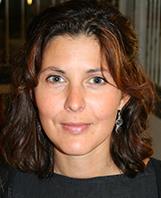Pioneering research on diversity in academia
“The diversity study now underway in Norway is a ground-breaking project,” states Paula Mählck of Stockholm University.

“There are huge knowledge gaps in the area of diversity in academia, and I want to see us do something similar in Sweden,” she says.
In connection with the KIF Committee’s diversity study, the Work Research Institute (AFI) and the Nordic Institute for Studies in Innovation, Research and Education (NIFU) are collaborating with Paula Mählck of Stockholm University. She will conduct the literature review and give recommendations for further research.
Read the article: New study on ethnic minorities’ career paths in research
Students have ethnicity, researchers are just researchers
Research on ethnicity in academia has often focused on students and on the effort to recruit a broader, more diverse student population, says Mählck.
“This is positive, but I would like to see the research go a step further. We are lacking studies on diversity among researchers and teachers and in doctoral programmes.”
This is not only problematic, but strange as well:
“It’s odd that there’s so little research available in the Nordic countries since it’s an established field internationally. When I entered the field in 2005, only a few studies had been conducted in Sweden. Although there have been some Swedish and international results in the field through the years, it’s clear that more research is needed.”
“In Sweden there are now a number of intersectional studies on gender and ethnicity in academia, but intersectional research has not had the same impact on research policy as gender equality research.”
“Gender and ethnicity are often connected thematically with low-income professions and low educational levels, but seldom with high-income professions and higher educational levels. What do you think is the reason for this?”
“I think there are many explanations working together here. Part of the reason, I think, is that we have had a long-held belief that Swedish academia has very few researchers with an immigrant background or international researchers.”
“This indicates that there is a lack of knowledge and that we need research on where in the institutions, and under what conditions, researchers with an immigrant background and researchers from abroad are found.”
Opposition abounds
However, there is opposition to studying this field. This same opposition does not exist when other organizations and workplaces are studied, according to Mählck.
“This is related to the idea that universities are a meritocratic organization. There is a belief that the system of rewards is based on performance, that it is a system that functions and that the researchers’ gender or ethnicity does not play a role in their career development. In other words, as long as they are capable enough, they will succeed.”
Mählck knows of colleagues who face a lot of opposition when they study gender in academia, and when intersectionality – both class and ethnicity – are added to the equation, it does not get easier for them. She believes this opposition is a manifestation of both sexism and white privilege.
“White privilege entails more than skin colour. It’s about being in a position where you don’t have to think about your own skin colour or your connection to academia.”
“It’s easier to talk about minorities than to understand how our own white privilege establishes the conditions for inclusion and exclusion on our own home turf.”
White privilege is controversial
“It seems that ethnic diversity in academia is a topic that upsets people. Why is that?”
“Diversity in academia complicates matters. Privileges and power hierarchies that were previously hidden become visible. It’s not enough to study gender in academia. We must also look at how gender interacts with other practices that give rise to differences at various levels in academia, how we are participants in this.”
This may be unpleasant to delve into, according to Mählck. By the same token, discomfort is not a legitimate reason for not changing a situation characterized by inequality.
“We need to resist oppression and privilege on a daily basis. But above all else, we need long-term research projects that uncover how racism and discrimination are created and legitimized,” she says.
Mählck believes the role of research is to challenge, and she wants to challenge established truths. She wants research to be used in research policy to create a fairer academic and research system, regardless of gender, skin colour or ethnicity.
“In a research policy perspective, it’s high time to include questions about intersectional relations, gender discrimination, racialization and racism in academia.”
“A prominent feature of white culture in Swedish higher education is silence and invisibility. When questions about intersectionality, gender, race and white privilege in academia are not raised, it’s difficult to talk about racism in academia,” she says.
Outstanding researchers with an immigrant background
Mählck is also currently working with Henry Montgomery and Hanna Kusterer on the three-year project Gender and ethnicity in recruitment of professors and in allocation of large research grants. They plan to have some results ready in 2016.
“A lot of evidence suggests that women are discriminated against in Swedish academia, despite positive attitudes about gender balance. Discrimination based on ethnic affiliation exists in working life, and it’s likely that these mechanisms are also found in academia. But due to a lack of research on the conditions for academics from abroad or with an immigrant background, we can’t say anything for certain about this,” says Mählck.
This is why it is high time to conduct research in this field. She believes it is important to study this topic for reasons of gender equality and inclusion, as well as for socioeconomic reasons:
“We can’t afford to lose talented people in a competitive knowledge economy. It’s essential to draw on expertise and resources from women and men regardless of their background.”
In this project, the researchers are seeking more detailed knowledge about the distribution of research funding and appointments to higher academic positions in Sweden.
“The aim of the project is to study how assessments and peer review processes play out. We want to look at how female and male researchers with and without an immigrant background, as well as international researchers, are evaluated. We will study expert assessments in professor recruitment processes and research grant allocations to see how excellence is constructed,” she explains.
“You say that you will investigate how excellence is constructed. Are you sceptical about how well a meritocratic system of rewards functions?”
“I think we should have a meritocracy, but I don’t see that it’s working. Several studies show that gender plays a role. We also see this in research conducted by Agnes Wold, among others, about the large research excellence initiatives. We think the same is true for ethnicity.”
Mählck also refers to Lena Sawyer and Stephen Saxonberg’s study from 2006 which showed that qualification assessments in hiring processes were used to exclude researchers with an immigrant background.
International and immigrant are not the same
How can the status quo be changed for the better? According to Mählck, several steps can be taken:
“The first step should be to conduct a state-of-the-art review, like the one being done in Norway right now. We need more research about the conditions encountered by researchers with an immigrant background and international researchers. These two groups are often combined, which is problematic.”
With regard to international researchers, Mählck believes it is important for all higher education institutions to think carefully about their own language policy, both formal and informal.
“This would entail making all official documents available in several different languages, thinking about how we talk at seminars and whether we are inclusive in a linguistic sense. Swedish policy has emphasized that people must learn Swedish. But as an international institution, universities should be multilingual.”
She also believes that career paths and employment conditions should be studied in light of diversity perspectives and that focus should be placed on diversity and anti-discrimination measures.
Intersectional diversity perspectives should be a fundamental aspect of research policy and the universities’ internationalization, she concludes.
Translated by Connie Stultz.
Paula Mählck completed her doctoral degree on gender in higher education in 2003. Her thesis was entitled Mapping Gender in academic workplaces: Ways of reproducing gender inequality within the discourse of equality.
Since then, her work has focused on various grounds for discrimination and how exclusion and discrimination come to the fore in higher education and research policy.
Part of the diversity study being conducted by the Work Research Institute (AFI) and the Nordic Institute for Studies in Innovation, Research and Education (NIFU) is a literature review in which relevant research literature from Norway and the other Nordic countries is examined. In this connection, the project managers are collaborating with Paula Mählck and Mette Andersson of the University of Oslo, both key researchers in this field in the Nordic region.
The Committee for Gender Balance and Diversity in Research (the KIF Committee) has commissioned AFI and NIFU to compile more knowledge about minorities’ career paths in the research sector.
The researchers will analyse existing datasets and conduct case studies of three different institutions – two from the university and university college sector and one from the research institute sector.
The task of the KIF Committee is to give input on how the research sector should work with gender equality and ethnic diversity. The study will contribute knowledge that can be brought to the sector to achieve a more balanced and diverse academic community.


